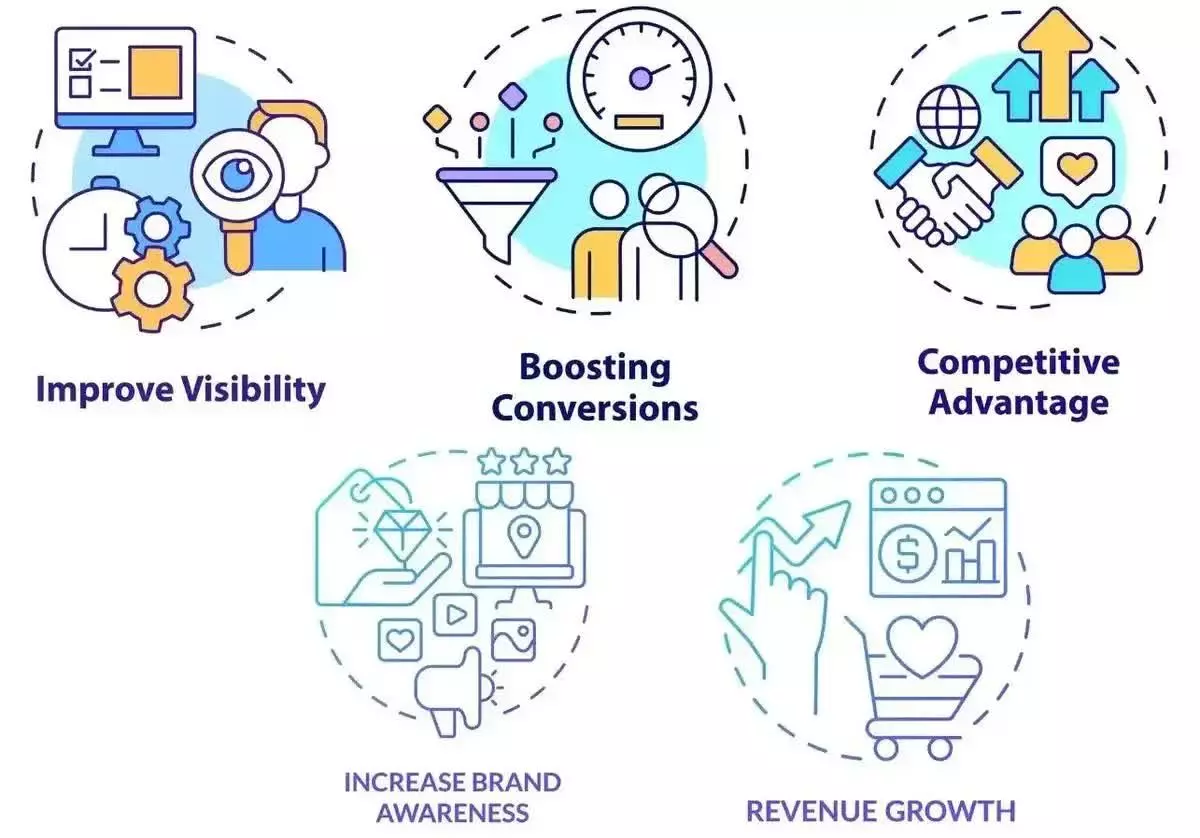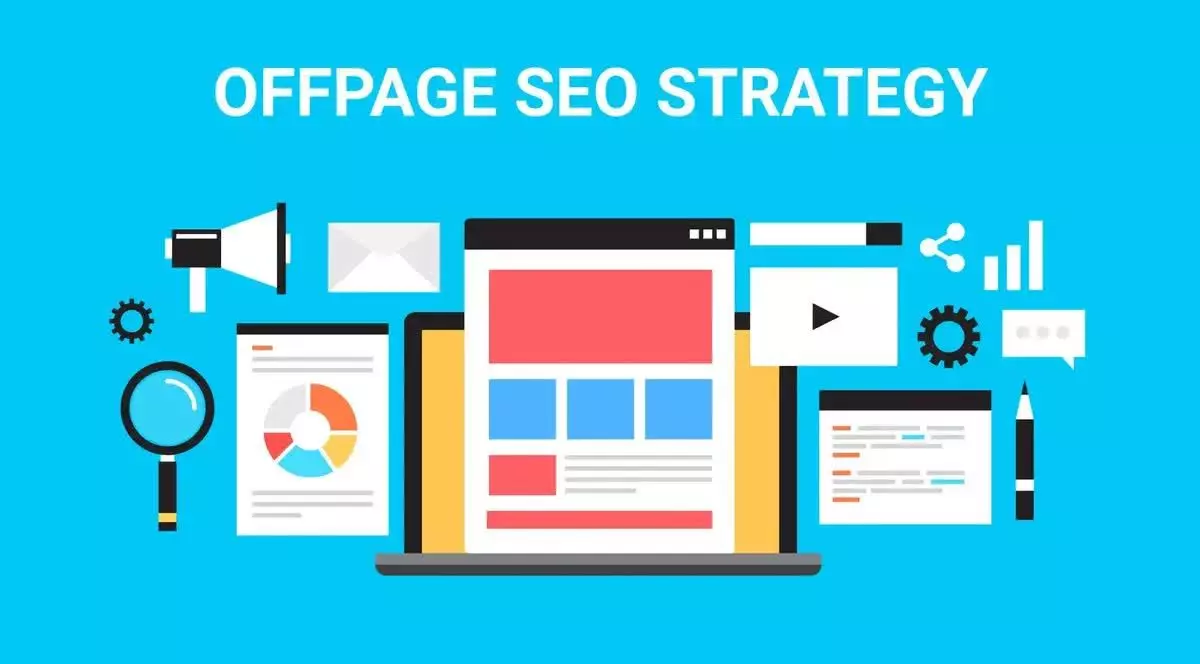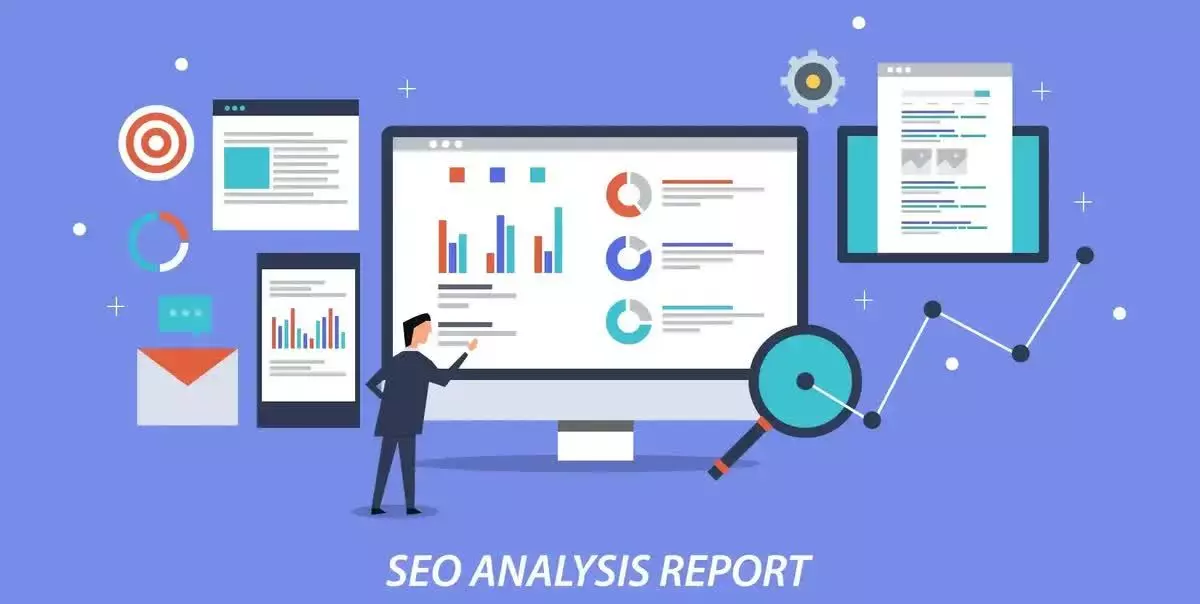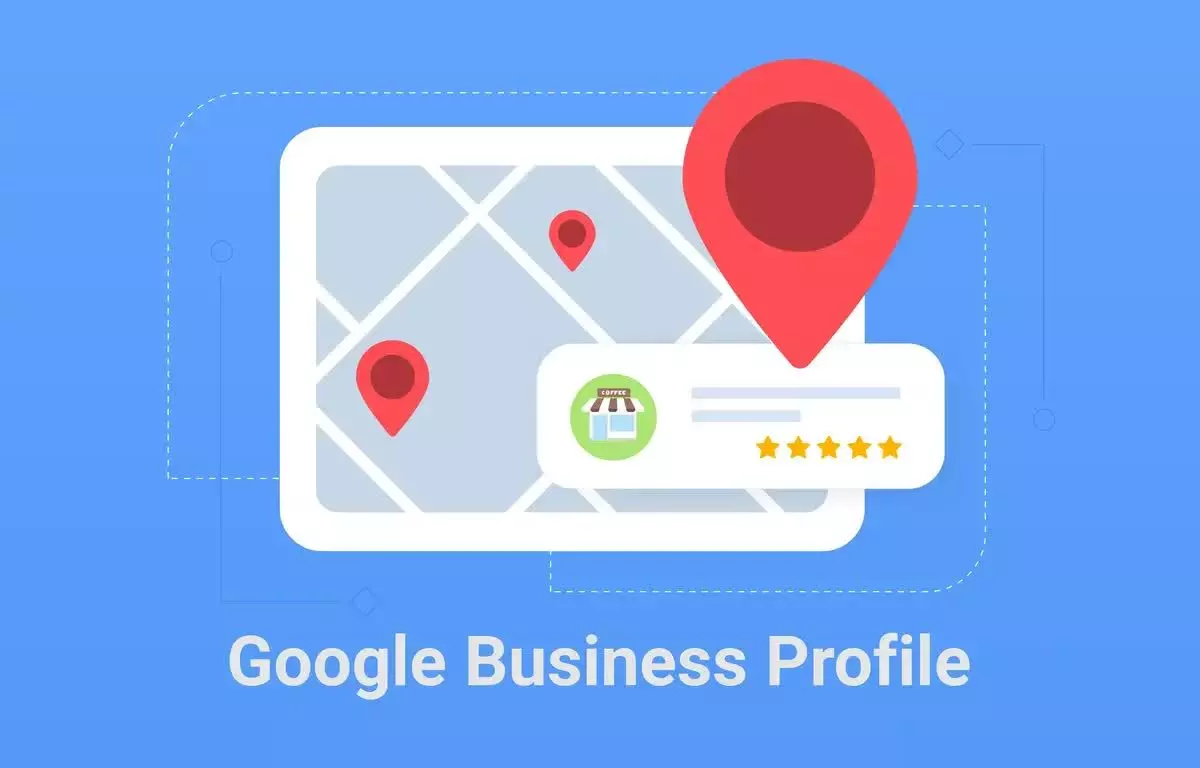Local SEO is an essential aspect of digital marketing that focuses on optimizing a website’s visibility and ranking in local search engine results pages (SERPs). It is a strategy that businesses use to target customers in their local area by providing relevant information about their products and services. Local SEO is becoming increasingly important as more and more people are using search engines to find local businesses.
Understanding Local SEO involves a deep understanding of how search engines work and how they rank websites. Local SEO is all about optimizing a website’s content, structure, and links to make it more visible to search engines. This includes optimizing the website’s metadata, including title tags, meta descriptions, and header tags, as well as optimizing the website’s content for local keywords. Additionally, businesses need to ensure that their website is mobile-friendly and has a fast loading speed to improve their website’s ranking in local search results.
Key Takeaways:
- Local SEO is an essential aspect of digital marketing that focuses on optimizing a website’s visibility and ranking in local search engine results pages.
- Understanding Local SEO involves a deep understanding of how search engines work and how they rank websites.
- Businesses need to optimize their website’s metadata, content, and structure for local keywords, ensure their website is mobile-friendly, and has a fast loading speed to improve their website’s ranking in local search results.
Understanding Local SEO
Local SEO is a set of practices and strategies that help businesses improve their online visibility for local search queries. It involves optimizing a website and online presence to attract more visitors from the local area and increase the chances of converting them into customers.
Local SEO is essential for businesses that have physical locations or serve customers in a specific geographic area. It is particularly important for small businesses that rely on local customers to drive revenue.
Local SEO involves several key factors, including:
- Google Business Profile (GBP): This is a free tool from Google that allows businesses to manage their online presence and appear in Google Maps and Google search results. Optimizing your Google Business Profile (GBP) is critical for local SEO success.
- Local keywords: Using location-based keywords in your website content, meta tags, and other online assets can help search engines understand where your business is located and what services or products you offer.
- Online directories: Listing your business in online directories like Yelp, Yellow Pages, and TripAdvisor can help increase your online visibility and attract more local customers.
- Reviews and ratings: Positive reviews and high ratings can help improve your online reputation and increase the likelihood of customers choosing your business over competitors.
- Local link building: Building links from other local websites and directories can help improve your website’s authority and increase your chances of ranking higher in local search results.
By understanding and implementing these key factors, businesses can improve their online visibility and attract more local customers.
Benefits of Local SEO
Local SEO provides a range of benefits to businesses that operate within a specific geographic area. Here are some of the key benefits of implementing a local SEO strategy:
Improved Online Visibility
Local SEO activities, such as citation building, can improve a business’s visibility in local search results. This increased visibility can help businesses attract more local customers and build better online visibility overall. By appearing in Google’s 3-pack, businesses can improve their chances of being seen by potential customers.
Increased Brand Awareness
Local SEO can raise a business’s profile among local consumers by increasing its presence in local search engine rankings. This increased exposure can help businesses build their brand name and lead to sustained organic traffic over time. By focusing on mobile devices, businesses can also reach customers who are searching for local products and services on the go.
Higher Conversion Rates
By targeting local customers, businesses can increase their chances of converting website visitors into customers. Local SEO can help businesses create content that is tailored to the needs of their local audience, which can increase the likelihood of conversions. By building relationships with other local businesses, businesses can also gain loyal customers who are more likely to return for repeat business.
Competitive Advantage
Local SEO can help businesses stand out from the competition by highlighting their unique selling points and differentiators. By building relationships with other local businesses, businesses can also gain access to link-building opportunities that can improve their search engine rankings. By featuring their services in directory listings, businesses can attract more customers and gain a competitive edge in their local market.
Increased Sales Revenue
By attracting more local customers, businesses can increase their sales revenue and grow their business. Local SEO can help businesses reach customers who are actively searching for their products and services, which can lead to increased sales and revenue. By featuring their services in Google’s 3-pack, businesses can also increase their chances of being seen by potential customers and generating more leads.
Keyword Research for Local SEO
Local SEO is all about optimizing a website to rank higher in search results for local searches. Keyword research is a crucial part of local SEO, as it helps businesses identify the most relevant and profitable keywords to target. Here are some key points to keep in mind when conducting keyword research for local SEO.
Importance of Keyword Research
Keyword research is important for local SEO because it helps businesses understand the language that their target audience uses when searching for products or services in their area. By identifying the most relevant and profitable keywords, businesses can optimize their website content, metadata, and Google My Business profile to rank higher in search results and attract more local customers.
Keyword research also helps businesses identify gaps in their local SEO strategy. For example, if a business is not ranking well for a particular keyword that is relevant to their industry and location, they may need to adjust their content or backlink strategy to better target that keyword.
Tools for Keyword Research for Local SEO
There are many tools available for conducting keyword research for local SEO. Here are a few popular options:
- Google Keyword Planner: This free tool from Google allows businesses to research keywords and see how often they are searched for. It also provides information on the competition level for each keyword.
- Ahrefs: Ahrefs is a paid tool that provides in-depth keyword research data, including search volume, keyword difficulty, and related keywords. It also provides data on competitors’ keywords and backlinks.
- Moz Keyword Explorer: Moz Keyword Explorer is another paid tool that provides keyword research data, including search volume, keyword difficulty, and related keywords. It also provides data on the top-ranking pages for each keyword.
When conducting keyword research, it’s important to consider both short-tail and long-tail keywords. Short-tail keywords are more general and have a higher search volume, while long-tail keywords are more specific and have a lower search volume but are often easier to rank for.
In conclusion, keyword research is a crucial part of local SEO. By identifying the most relevant and profitable keywords, businesses can optimize their website and Google My Business profile to attract more local customers and improve their search rankings.
On-Page Optimization for Local SEO
On-page optimization is an essential part of local SEO that involves optimizing your website’s content and structure to improve its visibility in search engine results pages (SERPs). Here are some of the most important factors to consider when optimizing your website for local search.
Meta Tags Optimization
Meta tags, such as title tags and meta descriptions, play a crucial role in local SEO. They provide search engines with information about your website’s content and help them understand what your pages are about. Here are some tips for optimizing your meta tags for local search:
- Include your target keywords in your title tags and meta descriptions.
- Keep your title tags under 60 characters and your meta descriptions under 150 characters.
- Use your city or region name in your title tags and meta descriptions to help search engines understand the local relevance of your content.
- Make sure your meta tags accurately reflect the content on your page.
Content Optimization
Content is king when it comes to local SEO. Your website’s content should be high-quality, relevant, and optimized for your target keywords and local area. Here are some tips for optimizing your content for local search:
- Use your target keywords in your content, but don’t overdo it.
- Include your city or region name in your content to help search engines understand the local relevance of your content.
- Make sure your content is unique and provides value to your visitors.
- Use header tags (H1, H2, H3) to structure your content and make it easier to read.
- Use bullet points and tables to break up your content and make it more scannable.
Schema Markup
Schema markup is a type of structured data that helps search engines understand the content on your website. It can also help your website appear in rich snippets in SERPs, which can improve your click-through rates. Here are some tips for using schema markup for local search:
- Use LocalBusiness schema markup to provide search engines with information about your business, such as your address, phone number, and business hours.
- Use Product schema markup to provide search engines with information about your products, such as their price, availability, and reviews.
- Use Review schema markup to provide search engines with information about your business’s reviews and ratings.
In summary, on-page optimization is a critical part of local SEO. By optimizing your meta tags, content, and schema markup, you can improve your website’s visibility in local search results and attract more visitors to your site.
Off-Page Optimization for Local SEO
Off-page optimization for local SEO refers to the actions taken outside of a website to improve its search engine ranking. These actions include optimizing local business directories, social media profiles, and link building.
Local Business Directories
Local business directories are online directories that list local businesses. Optimizing these directories can help improve a business’s visibility and search engine ranking. The following are some tips for optimizing local business directories:
- Ensure that the business’s name, address, and phone number (NAP) are consistent across all directories.
- Include the business’s website URL, hours of operation, and business description.
- Choose the most relevant categories for the business.
- Encourage customers to leave reviews on the directory listings.
Social Media Optimization
Social media profiles can also impact a business’s search engine ranking. The following are some tips for optimizing social media profiles:
- Ensure that the business’s name, address, and phone number (NAP) are consistent across all social media profiles.
- Include a link to the business’s website in the profile.
- Use relevant keywords in the profile description.
- Post regularly on social media to increase engagement.
Link Building
Link building is the process of getting other websites to link back to a business’s website. This can help improve a business’s search engine ranking. The following are some tips for link building:
- Reach out to local bloggers and ask them to write about the business.
- Guest posts on local blogs and include a link back to the business’s website.
- Participate in local events and sponsorships to get links from event websites.
- Offer to write guest posts for other local businesses and include a link back to the business’s website.
By optimizing local business directories, social media profiles, and building links, businesses can improve their off-page optimization for local SEO.
Local SEO Analysis and Reporting
Local SEO analysis and reporting are essential for any business that wants to succeed in local search engine optimization. This section will cover two crucial sub-sections of local SEO analysis and reporting: SEO audit and performance tracking.
SEO Audit
An SEO audit is a comprehensive analysis of a website’s current SEO status. It evaluates the website’s strengths and weaknesses, identifies areas for improvement, and provides recommendations for optimizing the website for search engines. An SEO audit is the first step in any local SEO campaign.
During an SEO audit, several factors are evaluated, including:
- Website structure and design
- Content quality and relevance
- Keyword usage and optimization
- Backlink profile and authority
- Local listings and citations
- Mobile-friendliness and website speed
After conducting an SEO audit, businesses can identify areas for improvement and develop a plan to optimize their website for local search engines. It is best to conduct an SEO audit regularly to ensure that the website stays up-to-date with the latest SEO trends and best practices.
Performance Tracking
Performance tracking is the process of monitoring a website’s performance in local search engines. It involves tracking various metrics, including website traffic, keyword rankings, and local search visibility. Performance tracking helps businesses understand how well their website is performing in local search engines and identify areas for improvement.
Some essential metrics to track during performance tracking include:
- Organic traffic
- Keyword rankings
- Click-through rates (CTR)
- Conversion rates
- Local search visibility
Businesses can use various tools to track their website’s performance, including Google Analytics, Google Search Console, and local SEO tools like BrightLocal and Moz Local. Regular performance tracking can help businesses adjust their local SEO strategy to improve their website’s performance in local search engines.
In conclusion, conducting an SEO audit and regularly tracking website performance are essential for any business that wants to succeed in local search engine optimization. By identifying areas for improvement and tracking website performance, businesses can optimize their website for local search engines and improve their online visibility.
Challenges in Local SEO
Local SEO can be challenging for businesses of all sizes. The following are some of the most common challenges that businesses face when implementing a local SEO strategy.
Google Algorithm Updates
One of the biggest challenges in local SEO is keeping up with Google’s algorithm updates. Google makes hundreds of updates to its algorithm every year, and these updates can have a significant impact on a business’s local search rankings. For example, the Google Pigeon update in 2014 changed the way that local search results were displayed, putting a greater emphasis on proximity and location. This meant that businesses that were located closer to the searcher’s location were more likely to appear in the search results.
To stay ahead of the game, businesses need to stay up-to-date with the latest algorithm updates and adjust their local SEO strategies accordingly. This can involve a lot of trial and error, as businesses test different strategies to see what works best.
Online Reputation Management
Another challenge in local SEO is managing a business’s online reputation. Online reviews are a critical factor in local search rankings, and businesses with poor reviews are less likely to appear in the search results. However, managing online reviews can be difficult, especially for businesses with a large number of locations.
To manage their online reputation, businesses need to monitor their reviews on a regular basis and respond to negative reviews in a timely and professional manner. They also need to encourage their customers to leave reviews, as businesses with a higher number of reviews tend to rank higher in the search results.
In conclusion, local SEO can be challenging, but with the right strategies in place, businesses can improve their local search rankings and attract more customers to their business.
Future of Local SEO
Local SEO is constantly evolving, and businesses need to stay ahead of the curve to ensure they remain visible to their target audience. Here are a few trends that are likely to shape the future of local SEO:
1. Increased Emphasis on Voice Search
With the rise of smart speakers and voice assistants, voice search is becoming increasingly popular. In fact, by 2023, it’s estimated that there will be 8 billion digital voice assistants in use worldwide. As a result, businesses will need to optimize their content for voice search to ensure they remain visible to users.
2. Greater Integration with Artificial Intelligence
Artificial intelligence (AI) is already being used to power local search results, and this trend is likely to continue in the future. By analyzing user behaviour and preferences, AI can deliver more personalized search results, which can help businesses improve their visibility and attract more customers.
3. Continued Importance of Google Business Profile
Google Business Profile (GBP), formerly known as Google My Business (GMB) is a crucial tool for businesses looking to improve their local search rankings. In the future, GBP will likely become even more important, as Google continues to prioritize local search results. Businesses that optimize their GBP profiles and actively manage their reviews will be better positioned to attract new customers.
4. Focus on User Experience
User experience (UX) is becoming increasingly important in all areas of digital marketing, and local SEO is no exception. Businesses that provide a positive user experience, with fast-loading pages, easy-to-use navigation, and high-quality content, will be more likely to rank well in local search results.
5. Increased Use of Video Content
Video content is becoming increasingly popular, and businesses that leverage their SEO potential will be better positioned to attract new customers. By creating high-quality video content that is optimized for local search, businesses can improve their visibility and attract more customers.
Conclusion
In conclusion, the future of local SEO is likely to be shaped by emerging technologies and trends, such as voice search, AI, and video content. By staying ahead of these trends and optimizing their local search strategies accordingly, businesses can improve their visibility and attract more customers.
🚀 Seeking to amplify your online visibility? You’re in luck! Our Malaysia-based SEO agency boasts a squad of ingenious experts dedicated to propelling your online presence. Don’t hesitate—ignite your impact now! Contact us today and embark on your journey!
 Singapore
Singapore  Singapore
Singapore Malaysia
Malaysia



















Comments are closed.